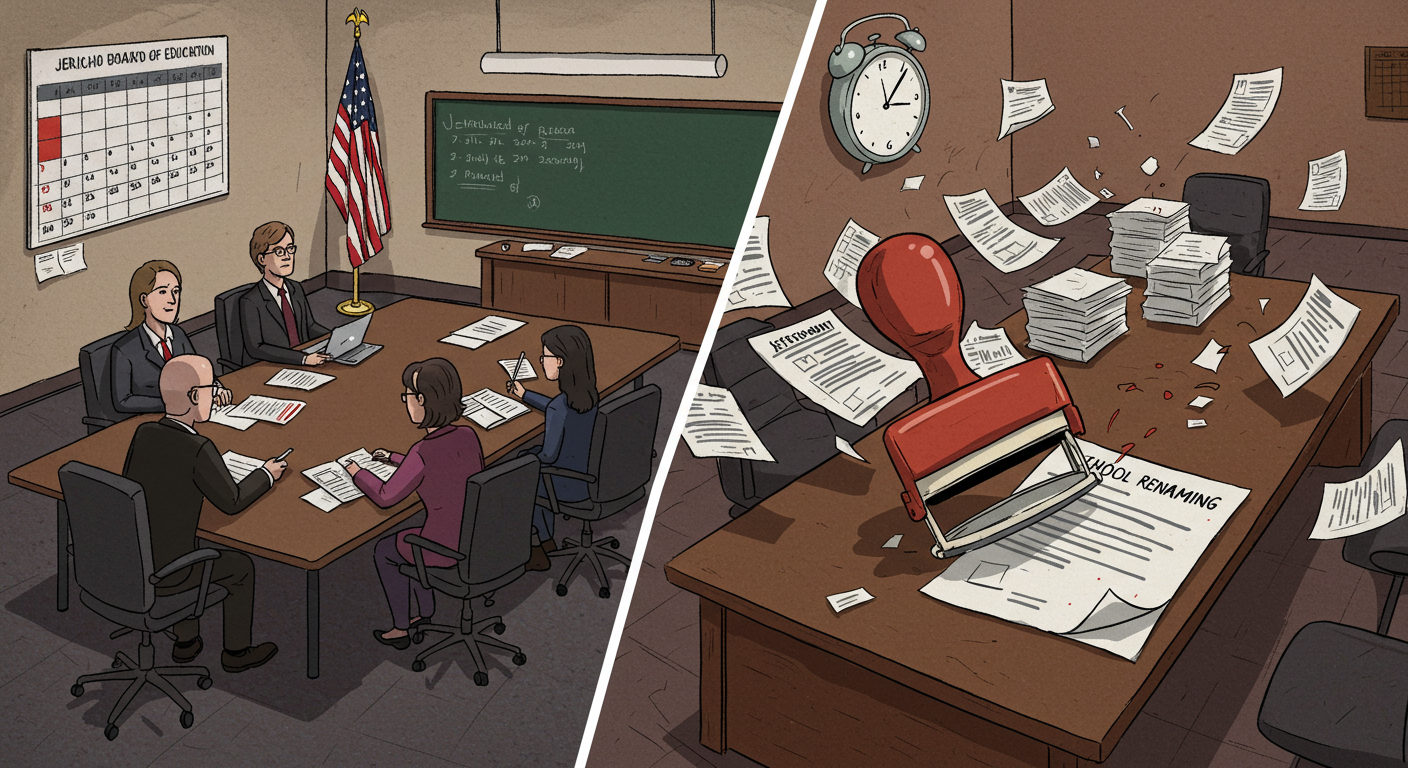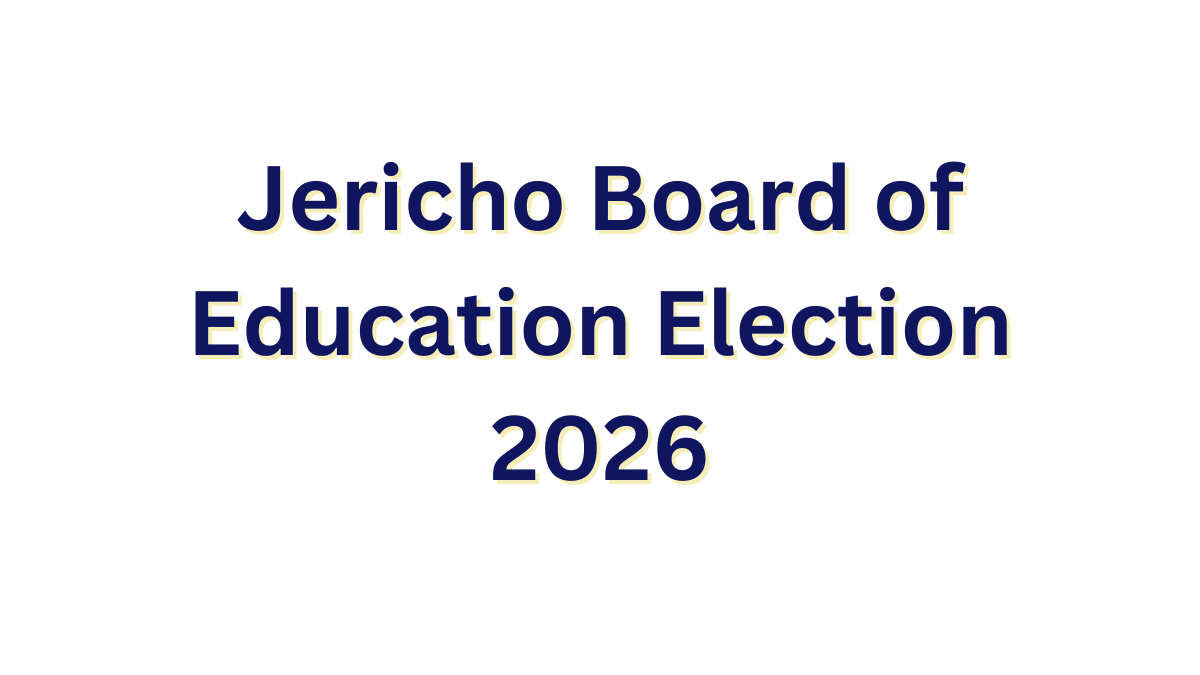A Tale of Two Decisions: One Careful, One Reckless
In the span of a single school year, the Jericho Board of Education has handled two major policy decisions—one affecting student cell phone use and the other renaming Cantiague Elementary School. The difference in how these decisions were approached exposes a troubling inconsistency in the board’s governance.
The cell phone policy took five months of structured debate, research, and stakeholder engagement before it was enacted. In contrast, the proposal to rename Cantiague Elementary is being pushed to a vote in just three months, despite substantial community opposition.
If a rule about cell phones required careful study and months of discussions, how can an irreversible school renaming be justified under such an expedited timeline?
The Cell Phone Policy: A Model of Deliberation
The student cell phone policy was first introduced in October 2024 after survey data was presented by the student board representative. Instead of rushing to a decision, the board took measured steps:
- November: The policy was formally discussed at a public work session. Additional research was requested.
- December: A policy proposal was introduced but delayed for further community feedback. Surveys were sent out to parents, students, and teachers.
- January: The board reviewed stakeholder input and made modifications to the proposal based on feedback.
- February 13: The policy was finally enacted—after five months of public engagement, research, and refinement.
This was good governance. The board took time to examine research, invite public participation, and ensure the final policy was well-considered.
The Cantiague Renaming: Rushed and Reckless
Now, compare that methodical process to how the board is handling the renaming of Cantiague Elementary:
- January 2025: The proposal was introduced with no community-wide survey, no historical analysis, and no financial disclosures.
- February 2025: The board advanced the proposal, despite a rapidly growing petition opposing it and no effort to gather broad public input.
- March 2025: A vote is scheduled to push the renaming through, even as concerns over governance, process, and funding remain unanswered.
Unlike the cell phone policy, there has been no structured process for engagement. There were no surveys sent to parents. There was no committee formed to assess historical or cultural significance. There was no financial report explaining the costs of a school renaming.
How can a permanent decision, one that alters the identity of an entire school, be treated with less care than a policy on cell phone use?
Why the Rush?
This inconsistency suggests one of two possibilities:
- The board is failing to apply a consistent standard of governance to major decisions.
- The renaming is being pushed through for political reasons, not community-driven ones.
Either scenario is troubling. If school renaming decisions can be rushed through without public input, what stops the board from making other irreversible changes without community consent?
A Call for Consistency and Transparency
If the board wants to rename a school, it must follow a formalized, transparent process, just as it did with the cell phone policy. This should include:
- A clear policy for renaming schools that outlines the process and criteria for consideration.
- Community-wide surveys to determine whether there is actual support for the change.
- A financial impact report to explain the cost of renaming, how it will be funded, and whether taxpayer dollars will be used.
- A historical and cultural review to assess the significance of the existing name.
Without these steps, the renaming process lacks legitimacy. The board cannot afford to set a precedent where some decisions require rigorous debate while others are fast-tracked without due diligence.
Conclusion
The board got it right with the cell phone policy. It followed a structured, transparent approach that invited community participation and careful review. The same standard must apply to the renaming of Cantiague Elementary. Anything less is a failure of governance.
The community deserves better.


